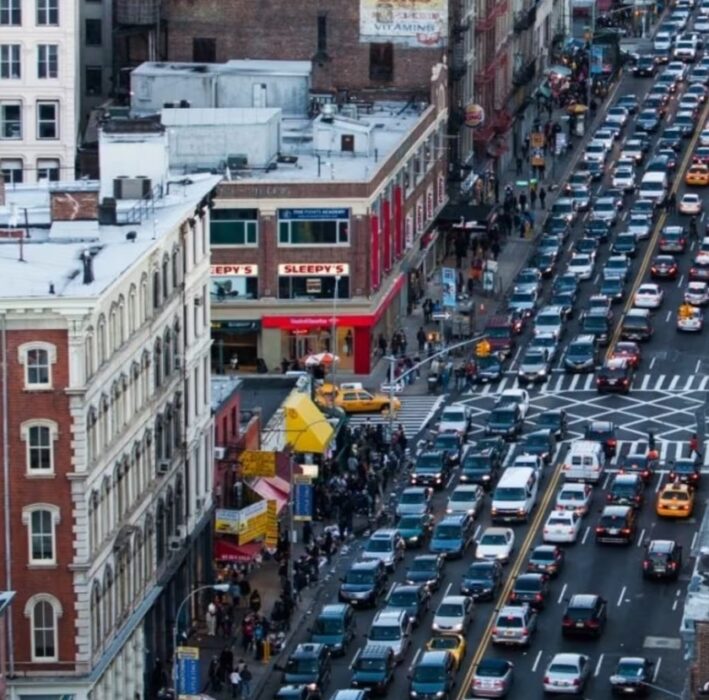New York City is inching closer to implementing congestion pricing, a system that will impact any driver entering the Central Business District (CBD) in Manhattan. The Traffic Mobility Review Board recently delivered its report to the Metropolitan Transportation Authority (MTA) board, detailing the proposed guidelines and prices. The tolls will affect passenger vehicles, trucks, motorcycles, taxis, and rideshare drivers.
According to the report, drivers entering the CBD from 60th Street in Manhattan and below will be charged a toll. Passenger vehicles will be charged $15 while small trucks will have to pay $24 and large trucks will be charged $36. Motorcycles will have to pay $7.50 to enter the CBD. The toll prices will be effective from 5 am until 9 pm on weekdays and from 9 am until 9 pm on weekends. During off-peak hours, the toll will be reduced to about $3.50 for passenger vehicles.
Taxis will be exempt from paying the toll but will have to pay a $1.25 surcharge per ride. Rideshare drivers, like Uber and Lyft, will also be exempt from the toll but will have to pay a surcharge of $2.50 per ride. Low-income drivers earning less than $50,000 a year can apply for a 50% discount on the toll but only after their first ten trips in a month. The toll will only be charged once per day, even if a driver enters and leaves the CBD multiple times.
"New York city will be the first city in America to charge Americans just to go to work in the morning"
"Americans will have to pay $23 per day"
"Passenger vehicles will be charged $15 to enter the congestion zone"
"Trucks between $26 and $36"
"The tolls will be charged once… pic.twitter.com/kMiREg4pI6
— Wall Street Silver (@WallStreetSilv) December 6, 2023
There will be exemptions for government vehicles and emergency vehicles, but no exemptions for public sector employees, those living in the CBD, or those with medical appointments in the area. The report also mentions that there will be "crossing credits" for drivers using the four tunnels to enter the CBD.
This means that drivers who already pay a toll, such as those using the Lincoln or Holland tunnel, will not have to pay the full congestion fee. However, drivers coming over the George Washington Bridge and going south of 60th Street will not receive such a discount.
The MTA board will have to vote on the pricing recommendations before the toll can be implemented, which they are aiming to do by late spring 2024. However, there have been objections and potential legal challenges from neighboring states, such as New Jersey, as well as Staten Island. Governor Phil Murphy of New Jersey has expressed concerns about charging drivers twice, as New Jersey drivers are already paying a toll to enter the CBD.
He has filed a lawsuit against the federal government to prevent congestion pricing from taking effect. Staten Island Borough President Vito Fossella has also spoken out against the plan, calling it "nothing short of highway robbery" for Staten Island residents.
The revenue generated from the toll will go towards improving New York City's transit system, making it more efficient and modern. The MTA hopes that this toll will also decrease the number of cars entering the CBD, reducing congestion by 17%. While the toll prices are lower than initial predictions, there are still concerns and potential legal challenges surrounding the implementation of congestion pricing in New York City.

